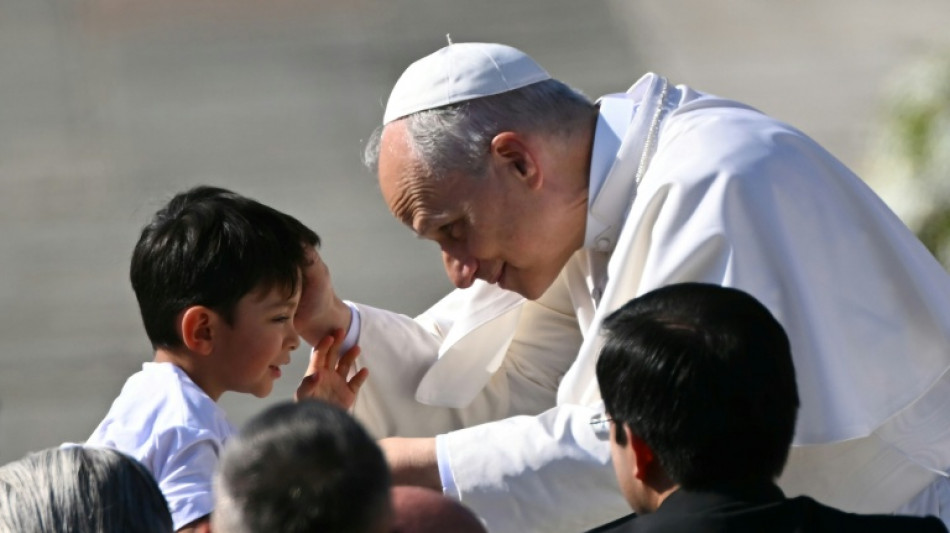
-
 Brazilian 'Superman' cheers child cancer patients in Ghana
Brazilian 'Superman' cheers child cancer patients in Ghana
-
India close in on win over South Africa after Jadeja heroics

-
 Huge explosions rock industrial area near Argentina's capital
Huge explosions rock industrial area near Argentina's capital
-
Bezzecchi takes pole for Valencia sprint and MotoGP

-
 Dominant Shiffrin leads after first slalom run in Levi
Dominant Shiffrin leads after first slalom run in Levi
-
Nine killed in accidental explosion at Indian Kashmir police station

-
 Climate protesters to rally at COP30's halfway mark
Climate protesters to rally at COP30's halfway mark
-
Fighting South Africa lose Rickelton after India 189 all out

-
 Harmer leads South Africa fightback as India 189 all out
Harmer leads South Africa fightback as India 189 all out
-
Prison looms for Brazil's Bolsonaro after court rejects his appeal
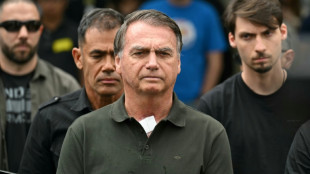
-
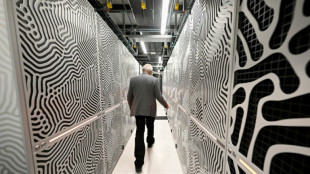 EU bows to pressure on loosening AI, privacy rules
EU bows to pressure on loosening AI, privacy rules
-
India close in on lead despite South African strikes
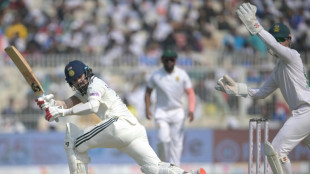
-
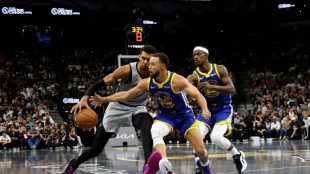 Curry's 49 points propel Warriors in 109-108 win over Spurs
Curry's 49 points propel Warriors in 109-108 win over Spurs
-
NZ boxer Parker denies taking banned substance after failed test

-
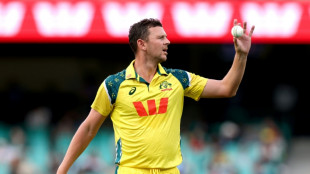 Australia setback as Hazlewood ruled out of 1st Ashes Test
Australia setback as Hazlewood ruled out of 1st Ashes Test
-
Australia pace spearhead Josh Hazlewood ruled out of 1st Ashes Test
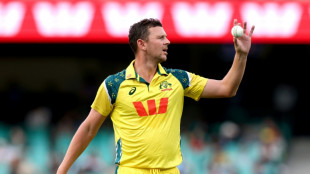
-
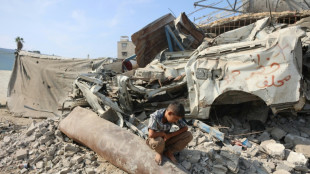 UN Security Council to vote Monday on Trump Gaza plan
UN Security Council to vote Monday on Trump Gaza plan
-
Japan's Tomono leads after men's short program at Skate America
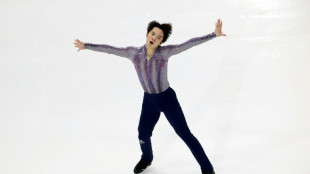
-
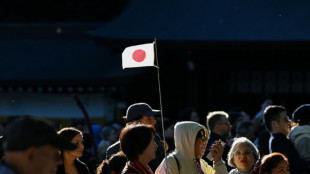 China tells citizens to avoid Japan travel as Taiwan row grows
China tells citizens to avoid Japan travel as Taiwan row grows
-
Purdue Pharma to be dissolved as US judge says to approve bankruptcy
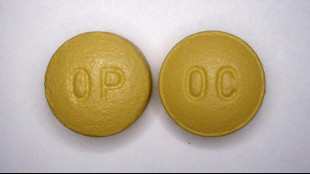
-
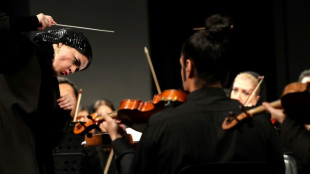 Iran's first woman orchestra conductor inspires
Iran's first woman orchestra conductor inspires
-
Wood gets all-clear in boost for England

-
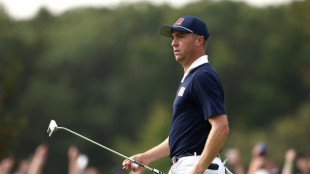 Golf's world No. 8 Thomas has back surgery
Golf's world No. 8 Thomas has back surgery
-
Rebooted Harlem museum celebrates rise of Black art

-
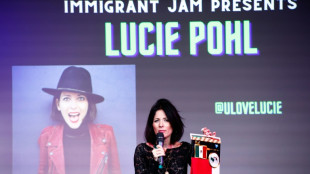 'Desperation in the air': immigrant comics skewer Trump crackdown
'Desperation in the air': immigrant comics skewer Trump crackdown
-
UN regulator says shipping still wants to decarbonize -- despite US threats
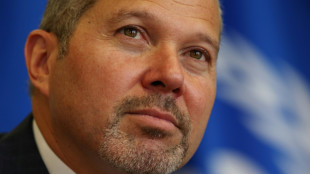
-
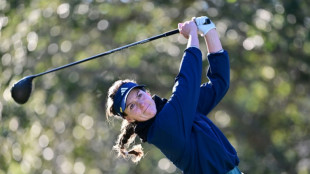 Grant, Kim share halfway lead in LPGA Annika tournament
Grant, Kim share halfway lead in LPGA Annika tournament
-
Musk's Grokipedia leans on 'questionable' sources, study says

-
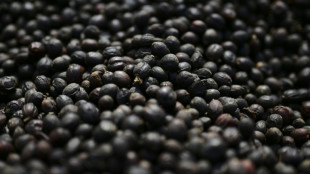 Trump signs order to lower tariffs on beef, coffee, other goods
Trump signs order to lower tariffs on beef, coffee, other goods
-
Croatia qualify for 2026 World Cup, Netherlands close, Germany in limbo
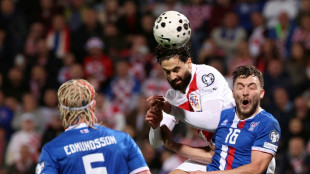
-
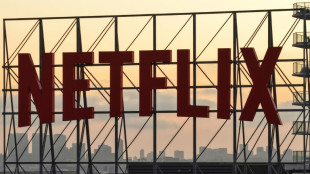 'Last Chance U' coach dies after shooting: US police
'Last Chance U' coach dies after shooting: US police
-
Sinner completes perfect ATP Finals group stage, Auger-Aliassime reaches last four
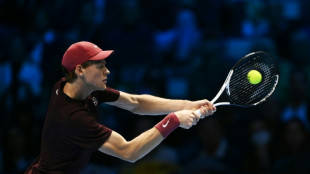
-
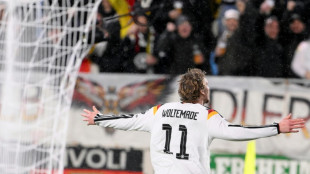 Woltemade sends Germany past Luxembourg in World Cup qualifier
Woltemade sends Germany past Luxembourg in World Cup qualifier
-
Croatia qualify for 2026 World Cup with 3-1 win over Faroes
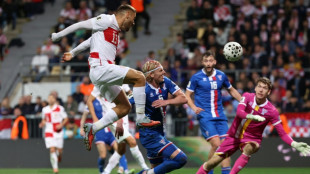
-
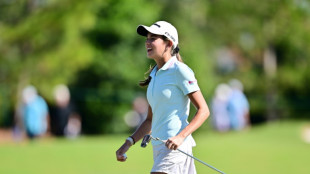 Kai Trump makes strides but still misses cut in LPGA debut
Kai Trump makes strides but still misses cut in LPGA debut
-
Return to bad days of hyperinflation looms in Venezuela
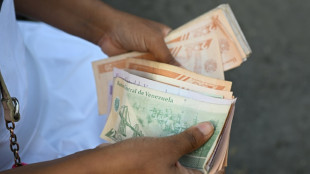
-
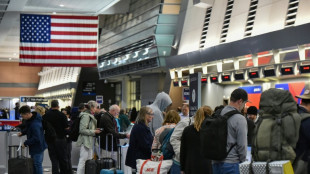 US airspace recovers as budget shutdown ends
US airspace recovers as budget shutdown ends
-
Russia strike on Kyiv apartment block kills six, Ukraine says
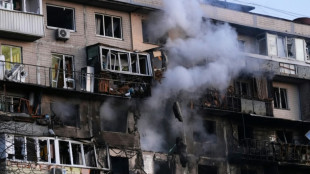
-
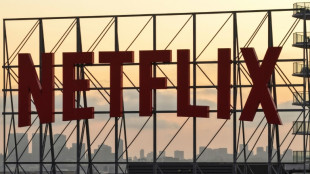 Arrest made in shooting of 'Last Chance U' coach: US police
Arrest made in shooting of 'Last Chance U' coach: US police
-
At COP30, senator warns US 'deliberately losing' clean tech race with China
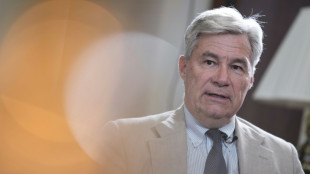
-
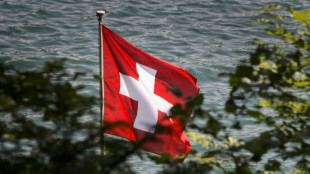 US, Switzerland say deal reached on trade and tariffs
US, Switzerland say deal reached on trade and tariffs
-
Fossil fuel lobbyists out in force at Amazon climate talks: NGOs

-
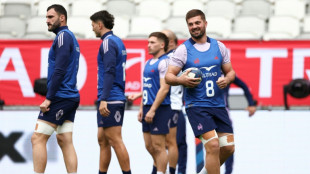 Returning Alldritt blames himself for France axing
Returning Alldritt blames himself for France axing
-
Stocks struggle on US rates, tech rally fears
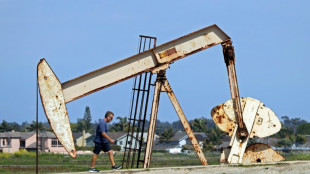
-
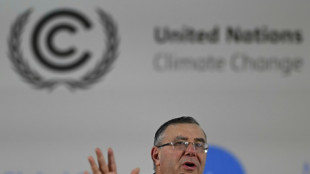 A rare oil CEO shows up at COP30, spars with activists
A rare oil CEO shows up at COP30, spars with activists
-
Trump demands probe into Epstein links to Bill Clinton
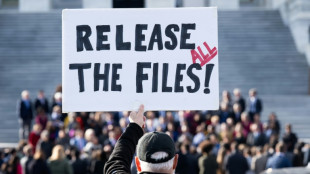
-
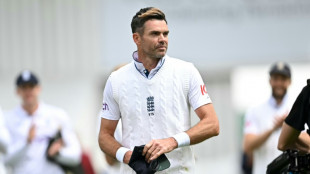 England great Anderson says 'weak' Australia still Ashes favourites
England great Anderson says 'weak' Australia still Ashes favourites
-
Indigenous protesters disrupt UN climate summit again
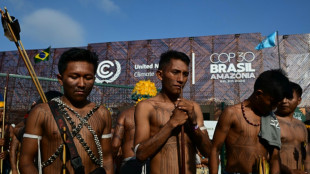
-
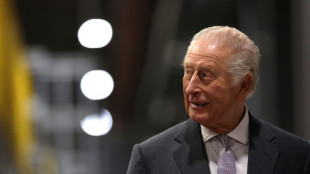 Gun salutes for King Charles III as he marks 77th birthday
Gun salutes for King Charles III as he marks 77th birthday
-
Ford urges England to make their own New Zealand history
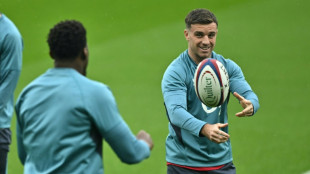

Pope Leo offers olive branch in allowing traditional mass
Pope Leo XIV has authorised a traditional mass to take place this weekend at the Vatican, lifting restrictions that angered conservatives in his latest attempt to heal splits within the Catholic Church.
The Tridentine or so-called Latin mass was commonly used across the Church before it was modernised in the 1960s, and was further limited by Pope Francis in 2021.
With Leo's approval, it will be celebrated in St Peter's Basilica at the Vatican on Saturday afternoon by ultraconservative US cardinal Raymond Burke, a fierce opponent of the late pontiff.
Conducted in Latin by a priest who keeps his back to the congregation, in a ceremony marked by the use of incense and Gregorian chants, the mass is preferred by many traditionalist Catholics.
Francis feared, however, that its use could undermine the legacy of the Second Vatican Council (1962-65), a series of reforms that sought to bring the Catholic Church into the modern era.
His papal decree restricting the use of the mass, "Traditionis Custodes", sparked anger among Catholic conservatives who felt they were being sidelined.
Pope Leo's move to allow the mass in the Vatican sends a "very strong signal to the conservative fringe", said Francois Mabille, head of France's Geopolitical Observatory of Religion.
The action of Leo suggests that "maybe the tensions within the church are stronger than we imagined a few months ago," he told AFP.
- Strategic balance -
Elected on May 8 following the death of Francis, Pope Leo faced a delicate mission bringing together a church of 1.4 billion followers deeply divided over social issues, from the role of women to the openness of the Church towards divorcees, gay faithful and migrants.
In his 12 years as pontiff, Francis often irritated conservatives with his decisions, especially in the United States. Burke, who will lead Saturday's mass, was one of the Argentine pope's strongest critics.
Leo has pursued many of the policies favoured by his predecessor, highlighting the need to help the poor and marginalised and to protect the environment.
When the Vatican welcomed an LGBTQ+ pilgrimage as part of the church's Jubilee year in September, critics renewed their attacks on the Holy See's "ideological drift".
But Leo has also given ground to conservatives.
He named Guinean Cardinal Robert Sarah, who considers immigration a threat to Europe's Christian identity, as a special envoy to a pilgrimage in France.
And the return of the Tridentine mass to the Vatican is also "a gesture of appeasement," said Martin Dumont, a historian and secretary general of the Research Institute for the Study of Religions.
It signals that "everyone is a part of the Church -- all sides must be accepted and received", he told AFP.
Leo "would like to meet Catholic groups who want this form of rite" to understand their motives, said Dumont, adding: "He is a man of peace, attentive to others."
Leo appears to be sending the message that the traditional mass has a place, as long as it does not threaten the legacy of the Vatican II reforms.
But the line between liturgy and politics is fraught.
In an interview published in September, Leo acknowledged that the debate over the mass was "very complicated" and had become part of the "polarisation" within the Church.
"Some have used the liturgy as a pretext to advance other subjects. It has become a political tool and that is very regrettable," he said.
X.AbuJaber--SF-PST
